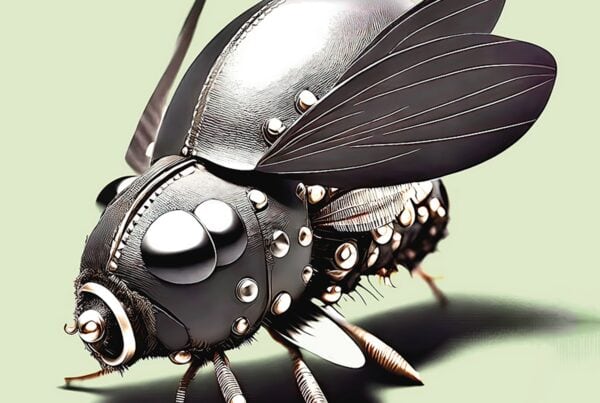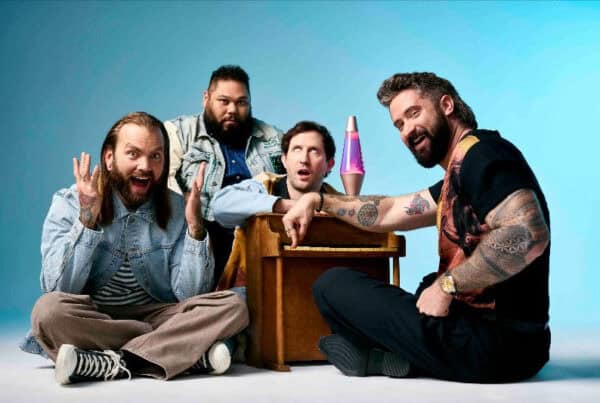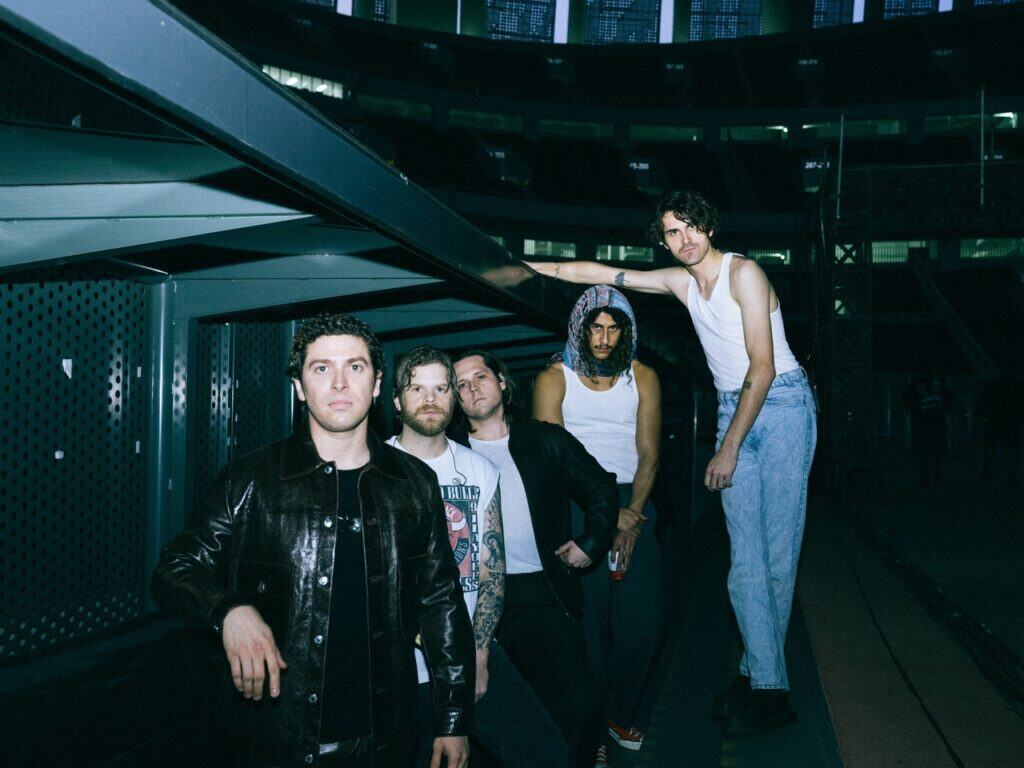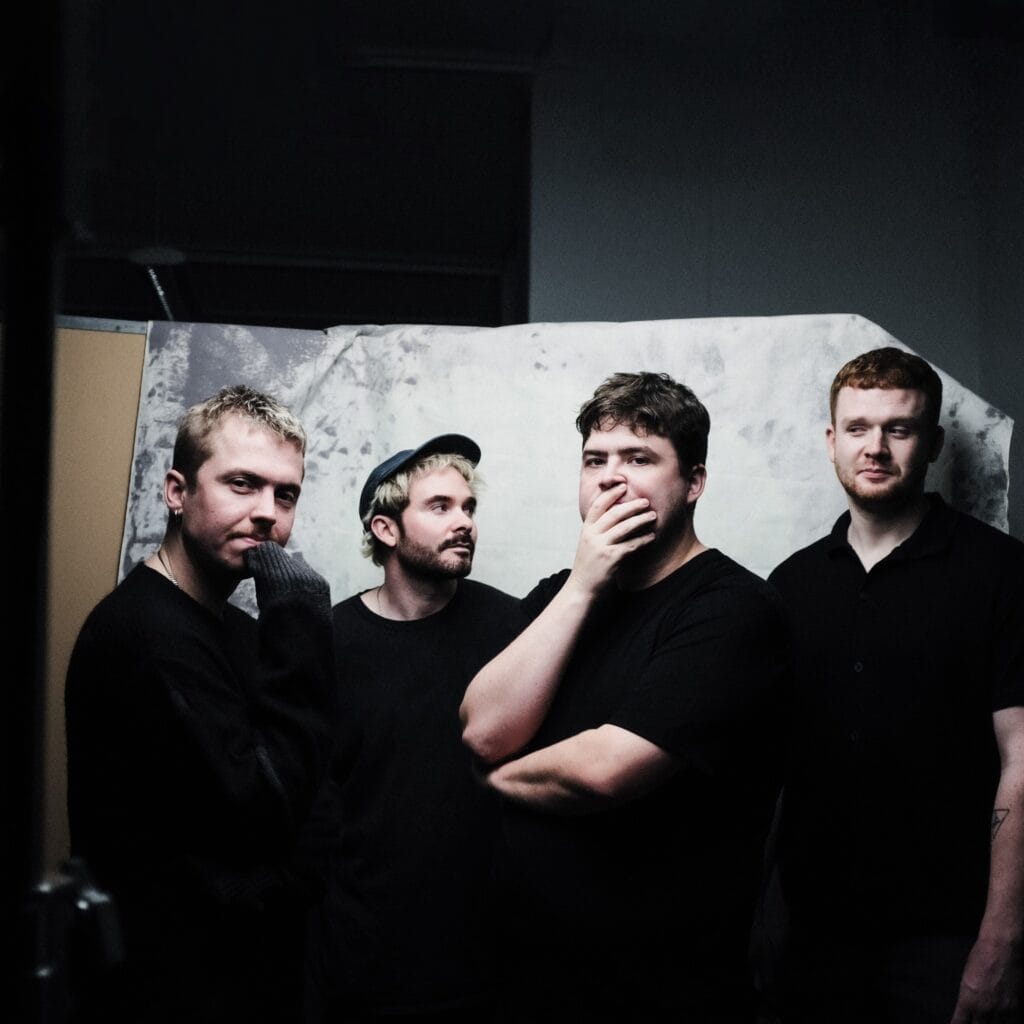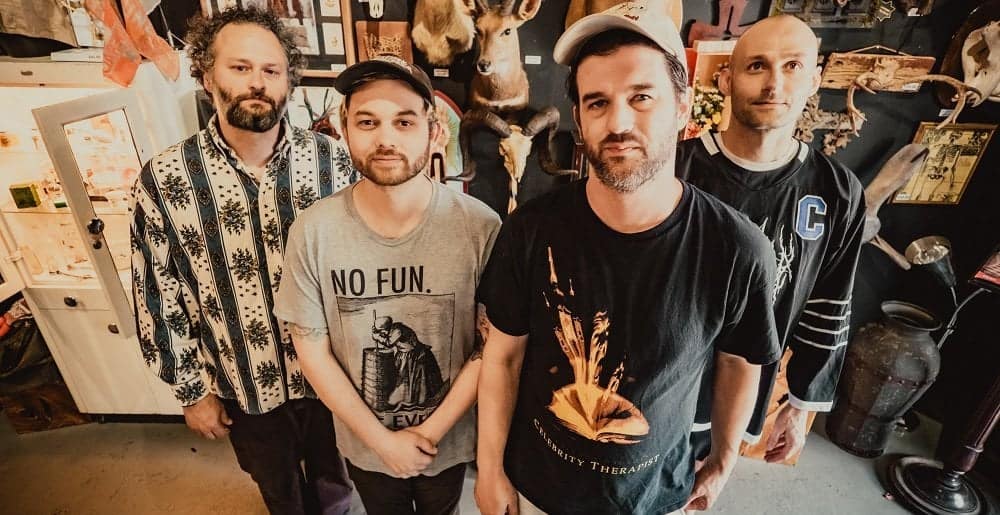“Have you ever heard of Psychedelic Porn Crumpets?” is a question bound to be met with a quizzical, raising-of-the-eyebrows, followed by, “Sorry, what did you just say to me?” You can picture it now: a jab at the hippy-dippy, fret-wanking psych scene, cooked up by four guys in Perth over five too many beers – the kind of name that for anyone else would seem an excellent idea at the time, only to be balked at in the morning. With the likes of acid-washed Tame Impala and the arty Methyl Ethyl being among Perth’s finest exports, it would be a challenge to rise through the ranks if you were to take yourself too seriously. That, ladies and gentlemen, is why musings such as, ‘I know a joint where beers are cheap / I worked their once but they fired me / ‘Cause I lost my lungs singing Queen’, are absolutely necessary. Psychedelic Porn Crumpets’ intent from the start has been to loosen up, just for the love of it.
Since their emergence in 2015, the band have released 3 studio albums, the latest of which being ‘And Now for The Whatchamacallit’, which captures their high spirits, tongue-in-cheek humour and infectious instrumentals. “I think we aimed for something a bit sideways from what we were going for with album one and two,” Jack McEwan, singer and guitarist, explains. “We didn’t want everyone to be like “Oh, this is going to be another Porn Crumpets record”, so we wanted to shift away from people’s expectations and try something a little different out.” Their love of music is multi-layered, but you get the sense that above all, their passion resides with performing: “All of us are really happy with it, and it’s been going down well live, so that, I suppose, is a sign of whether it’s a good album or not.”
It’s an album which has invited the world to be their oyster, with upcoming tour dates spanning Europe, venturing as far as Japan. After listing off a reel of dates he was looking forward to, Manchester among them, McEwan adds, “It’s places that you’re not looking forward to in particular which are always the most fun; you have no preconceptions, nothing to build up your hopes of this being the best night of your life.” He continues, “You can go out afterwards and meet a bunch of people which always makes it a lot more rewarding. We want to experience what that place is about, and get ideas to write the next album. I suppose wherever we go, we’re always intrigued to talk to locals and find out what the scene is like there. There’s a list on my phone – probably a hundred notes – of people writing down bands that I’m getting around to listening to.”
I remark that he doesn’t seem daunted by a global audience, as a band whose home country, as McEwan said, “is so big you rarely get to venture outside of it – a plane ride anywhere is like 5 hours out of Perth just to get to the next city. It’s rare that we get the opportunity and look at the map.” He confesses, “We got really anxious about that with the third album, about putting out something different. From growing up in Perth, to “Oh my god, everyone’s going to listen to this”, from looking at the Spotify following or watching Instagram blow up, or whatever – none of it you care about as much as how the gigs go down and how people respond to your music. We’ve tried to stray away from those kinds of aspects of it, otherwise it’s easy to be something you’re not – you’ll always cling to an ideal of what you want to become. I think with us growing up in Perth, it’s a big enough place so you can be an individual, but small enough that you could feasibly get your music out there.”
“There are probably 100 bands playing a week, whereas if you look at Manchester – where the music scene is booming at the moment – or London, Sydney or LA. The gig guides must be like the yellow-pages!”, he jokes. “But for us, we just wanted to have fun, play music, and make sure that we never got too involved in being a particular genre.” He pauses, “Nowadays people jump at the chance to categorise you, but some of them are really funny – we got called a ‘Doom Boogie’ band, which was my favourite so far. But it’s always expanding and interesting to see what people write about us. We never thought people would write about it, so I think now we’re just focusing on carrying on in this uncharted territory and seeing where this project can take us.”
The music industry has recently been contending with the place of critics; whether or not they are vital, or an outmoded spare part. “I was actually thinking about this the other day,” McEwan says.
“Mostly, nowadays, people will jump on what someone else thinks without having listened to an album themselves. Alex Turner captured it pretty well with “Four Stars Out of Five”, where people sit on the fence when it comes to music so much nowadays because you don’t want to piss anyone off. It’s just become a little mundane. I really like watching YouTube reviewers, like Anthony Fantano. I think the way that music has gone, reviews have gone the same way as well. I love reading individual pieces or independent journalism as well, of people who are like “Hey, I don’t work for anyone but can I come down to the gig?” and they’ll have this strange podcast or something, and then you just become a fan. I love it when people have their own, honest opinion to express – that stuff I really enjoy. But I suppose if you do work for a big company, you’ve got that company in mind so you can never talk as freely as you’d like. I feel like being in a band under some massive label or organisation would have the same kind of result. They’d put your music out but they’d make sure they have their say in it. I think that’s why everyone has gone more independent now: more freedom of speech.”
Psychedelic Porn Crumpets define what it is to be a DIY band. This notion of independence and creative control is something they had been striving for from the starting block. What Reality? Records was born: “We wanted a platform to release our music where we wouldn’t be bound by any degree of someone else’s opinion. I think having that freedom to be like “Here’s the B-sides of an album which came out six months ago” – which is kind of what we did with the B-side project – and that way it opened up freedom to do the third album.” However, with Psychedelic Porn Crumpets teetering on the brink of global adulation, being a DIY band signed to your own independent label proved to be an unsustainable ideal. Enter: Marathon Records. The independent label, much like the band themselves, began as music enthusiasts who built themselves from the ground up. Rather than struggling to organise world tours which would have undoubtedly taken years longer if done alone, Marathon Records pushed them in the right direction, without them having to compromise on their own autonomy.
“The benefit of being completely independent is the freedom with which you can put your music out there,” McEwan thinks, “but sometimes – and I’m completely contradicting myself from a couple of years ago here – it can help to have someone more experienced in the industry than you are. I always said that if you can make a good album or make good music, then people will find it – especially with the internet. You will get an audience, and they will share it with their friends. Word of mouth is the best way of gaining a following. We just want to play as many gigs as possible, playing to as many ears as possible. We started just writing music in a bedroom and jamming twice a week – we never had an outcome. We’ve never really put a target on anything. But with a good manager, we could start talking about going to England, America, Europe – and now we’re off to Japan! I never thought we’d ever be at this point. It would literally take us 20 years to organise that ourselves. I think now we’re starting to realise it’s not just the weekend hobby we’d used to rock up to in a 300-cap room in a pub and drink as much alcohol as possible. We could actually do something a bit more than that – we’re giving ourselves a chance to have a good crack at a career out of it. We just want to write music. I hate saying that because it’s such a cliché, but it’s true.”
By any measure, with a band clocking in at millions of streams with a worldwide reach, it could be said that Psychedelic Porn Crumpets are successful. McEwan, however, can’t seem to reconcile himself entirely with that: “If you call yourself successful then you’re completely content with the position you’re in,” he says. “I suppose you become stagnant because you’re not propelling yourself forward to achieve anything better.” Their self-editing process is quite rigorous, for a band who seem not to take themselves too seriously. Drummer, Danny Caddy, records all of their gigs, so they can listen back and consider how to improve and move forward. “Every album or song we write, we try to out-do the last album – that’s the viewpoint we have: we’re always trying to raise our level of success or produce better music, visuals, live shows or sound. If we’re not thinking about those things, you’ll just become comfortable and assume that everyone is going to keep coming to our gigs even though we’re not progressing.”
While self-image may seem to be the concern of a type of band Psychedelic Porn Crumpet are clearly not – in between the madness, McEwan has found time to reflect on his hopes for how the band is seen in the eyes of others. “Hopefully we make them think we’re something different, something they usually wouldn’t try. Music is such a strange art form,” he muses, “it makes you feel so many different things. I think, when we’re making music, the lyrics always come second. I’ll sit down and completely work on the music, and then I’ll think ‘How does it end? How does it get bigger?’ If you’re intriguing people to listen to the next song, or at least giving them some excitement, by bringing them on a journey. Good movies and directors will do this as well, like Wes Anderson or David Fincher; pulling you into a place you never thought you would be, but you’ve enjoyed every moment beforehand. You want to see where it goes from there. I think that’s the approach we’re trying to take with our music.”

